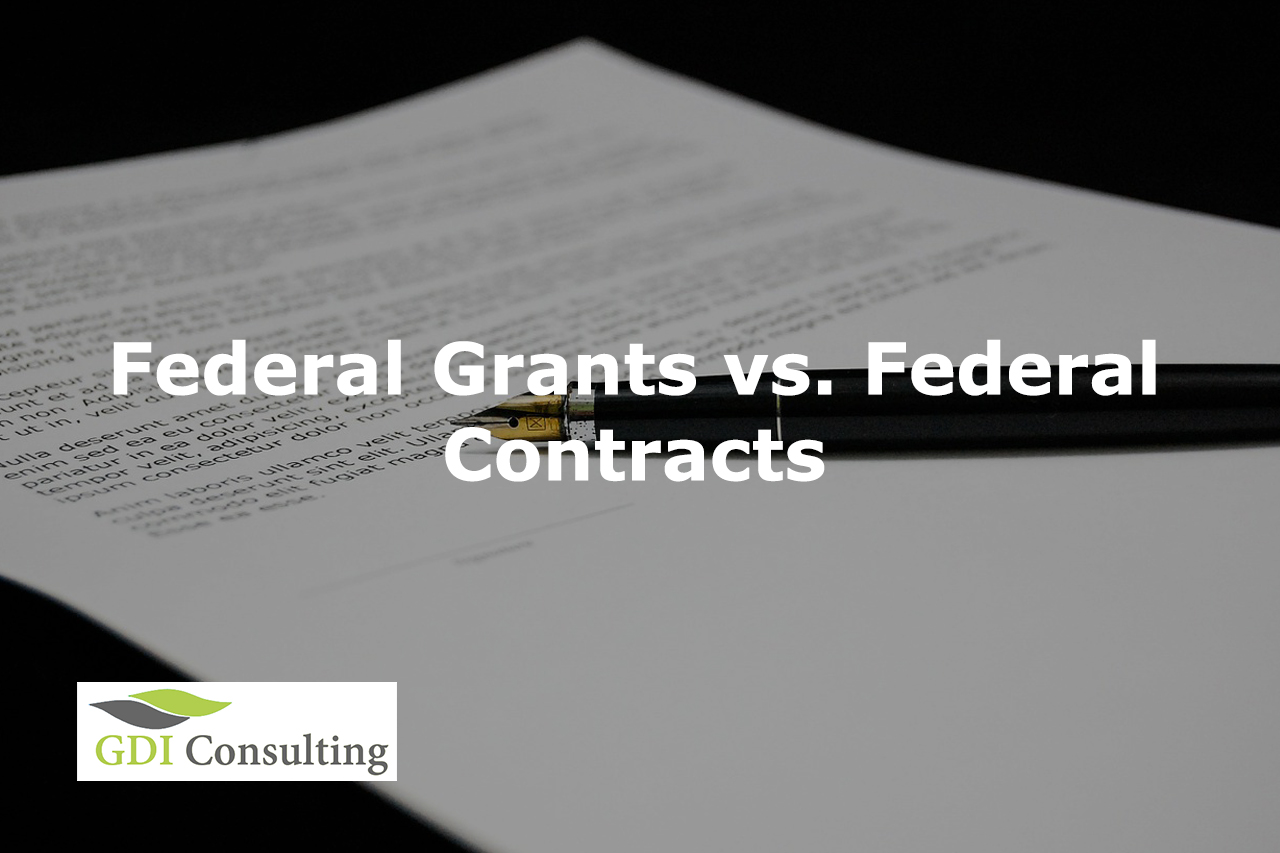Businesses often don’t understand and confuse Federal Grants with Federal Contracts. Although both of them are Federal funds, the difference lies in legal definitions, particularly regarding job performance and failures.
Grants are funding secured by federal government agencies and non-government organizations to help small businesses with additional financial sources to start or support their business development. On the contrary, the Federal contracts are business opportunities for businesses issued by the government to acquire products or services. The main difference between the two lies in the legal concept of default.
A contractor is legally bound to deliver the services that are acquired in a contract; otherwise, they will face legal encounters with the Federal Agency. They are obliged to complete the work within time and budget. On the other hand, for businesses that are granted funds, there is no legal binding even if they fail to deliver the task as promised. In worst case scenario, a company that didn’t accomplish their work won’t be able to apply for another grant. This stands only in the cases when failure to complete the work is not a violation of the law.
Both grants and contracts are mechanisms that the Federal Government uses as award vehicles, but the distinction lies in the fact that contracts have a direct benefit for the use of the government. Basically, grants are much more flexible than federal contracts. You can’t make changes in Federal Contracts, for example, in the statement of work or pricing; whereas grants are open to undergoing changes.
Some of the basic differences between them include:
FEDERAL GRANTS
- The Government provide funding assistance expecting for the business to achieve the results by performing the task as promised, but there are no legally binding demands to achieve the promised result;
- Full payment is awarded usually at a particular time;
- Flexible to undergo changes in statement/scope of work, budget, and other outcomes;
- More pliability in utilizing the funds and reporting to the funding agency;
- Assistance Mechanism to help businesses initiate or support their business growth;
- Governed by Code of Federal Regulations, OMB Regulations,
FEDERAL CONTRACTS
- A Federal Contract is a binding agreement between a Federal government or local government agency and the contractor to provide supplies or services in return for monetary consideration
- Contracts are governed by strict set terms and conditions, including clauses from the Federal Acquisition Regulation (FAR)
- Comparing to grants, more inflexible for changes in scope of work, budget, and other sections
- Significant importance is given to the performance, delivery of results, services or products
- Full payments made only if the job fulfilled realistic expectations
- Frequent reporting to federal officials
- High level of accountability and responsibility
The difference between a Grant and Contract Proposal
As there are differences between grants and contracts, naturally, their proposals are prepared differently. When preparing a grant proposal, the first thing you need to do is understand well the requirements of the application. Though it might seem easy, preparing a compelling application requires great expertise and experience. Brainstorm, generate ideas and prepare each step carefully starting from Expression of Interest (EOI) to the grant itself.
Writing proposals for federal contract awards is much different. Depending on the contract type and the format of the RFP, preparing the response for government procurement requires more effort, time and assessment. Of course, it requires professional expertise in order to ensure compliance and make sure all the requirements and needs are met.

